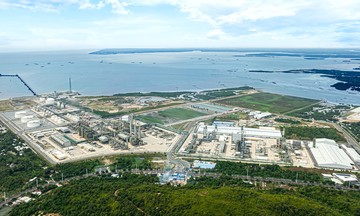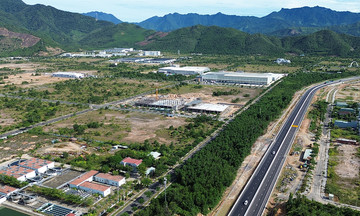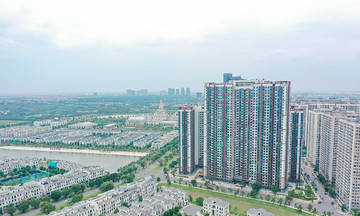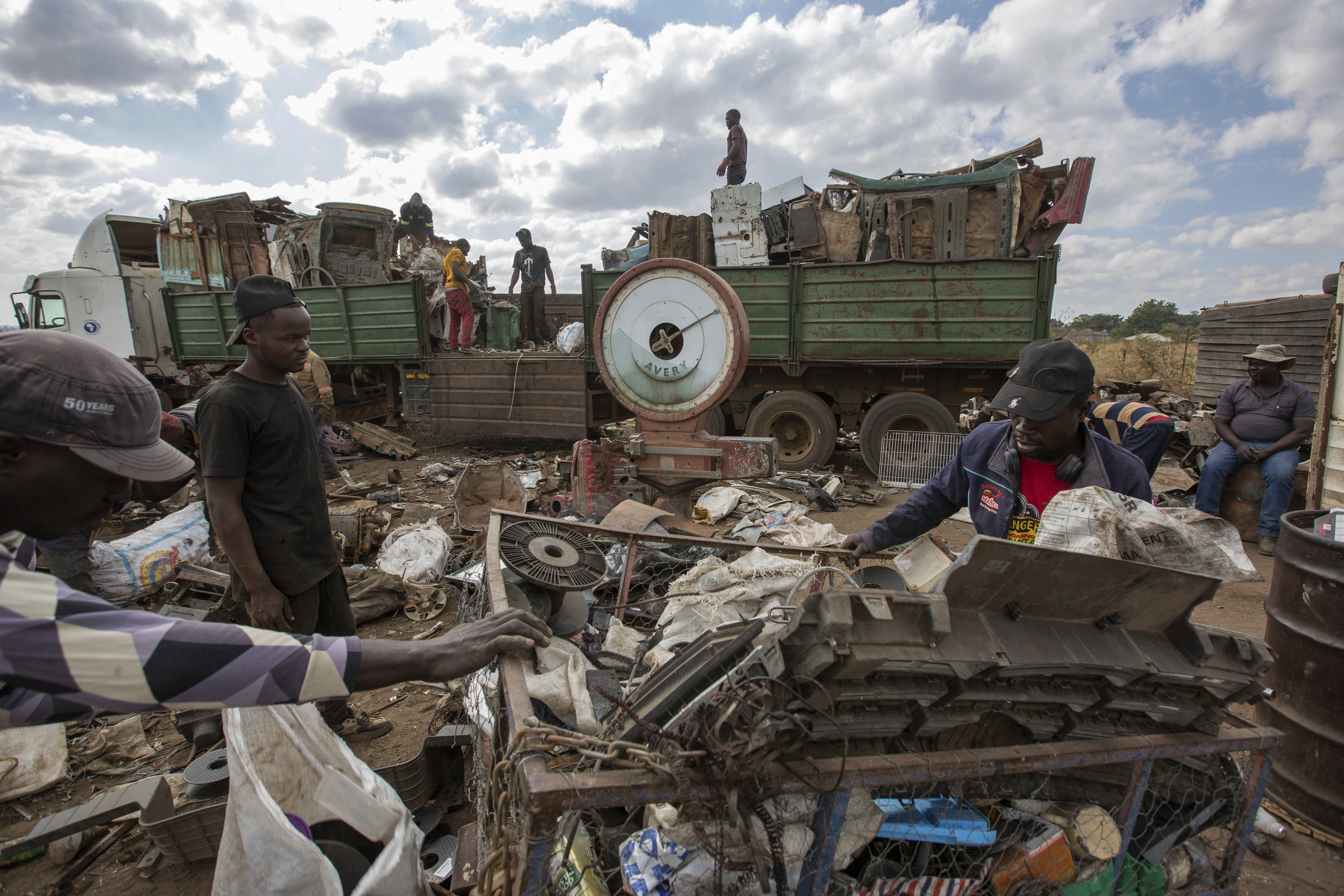 |
Workers load scrap metal onto a truck at a collection point in Harare, Zimbabwe, 8/6.
"Any 'gold' today?" Ezekiel Mabhiza asked a man stooping over an illegal dumpsite in Harare, Zimbabwe, picking through the debris with a hoe.
"Gold" refers to valuable scrap metal amidst discarded diapers, animal carcasses, and broken appliances. 36-year-old Mabhiza gave up searching for formal employment to become a scrap collector.
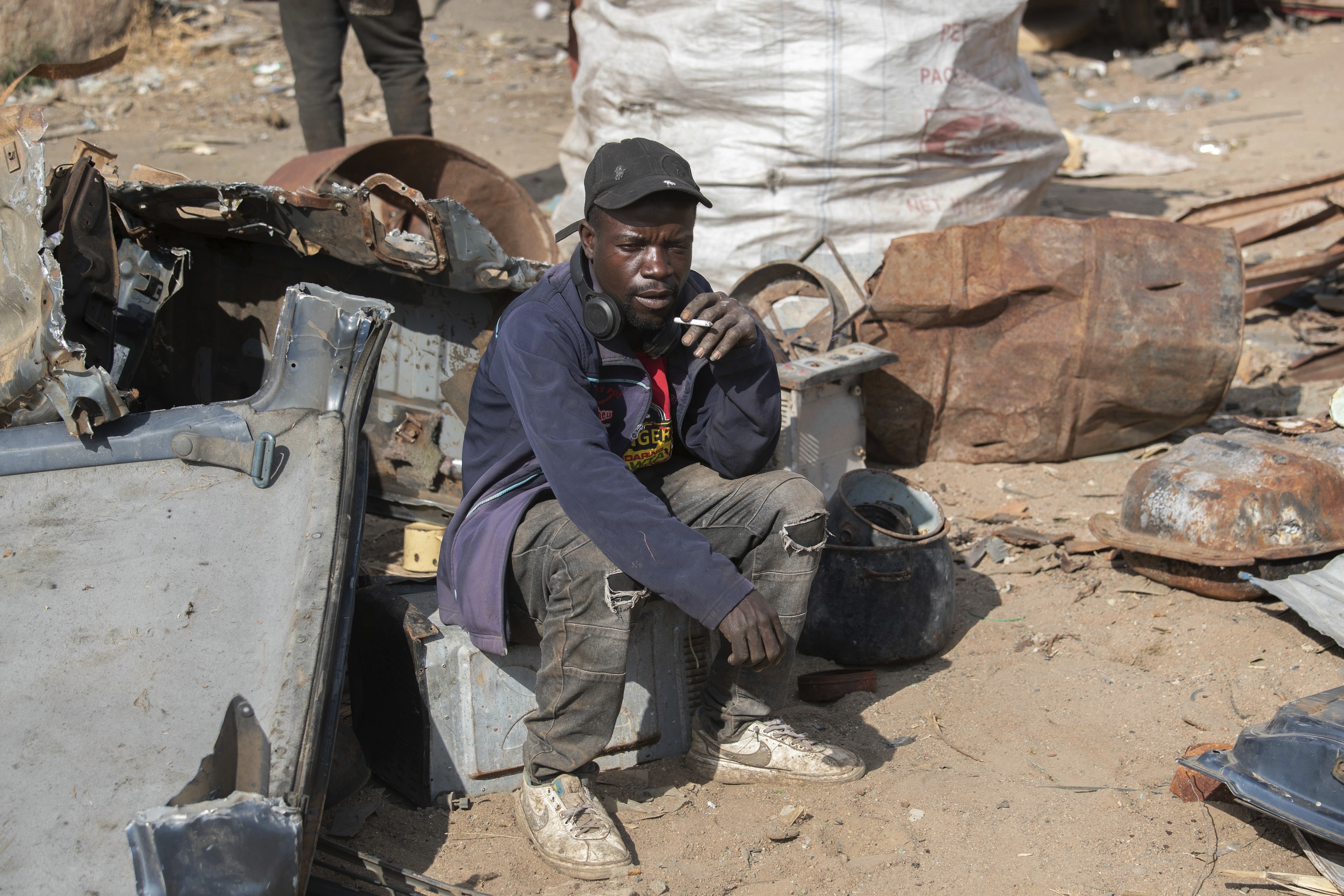 |
Ezekiel Mabhiza takes a break while collecting scrap in Harare, Zimbabwe, on 8/6.
By midday, he had collected 66 kg of scrap, including tin cans, bed springs, and auto parts. This haul could earn him 8 USD at the scrap yard, enough to feed his five children and contribute towards utilities.
Across Harare, thousands like Mabhiza make a living from scrap, inadvertently contributing to a cleaner environment and combating climate change. Producing steel from scrap requires less energy than from ore.
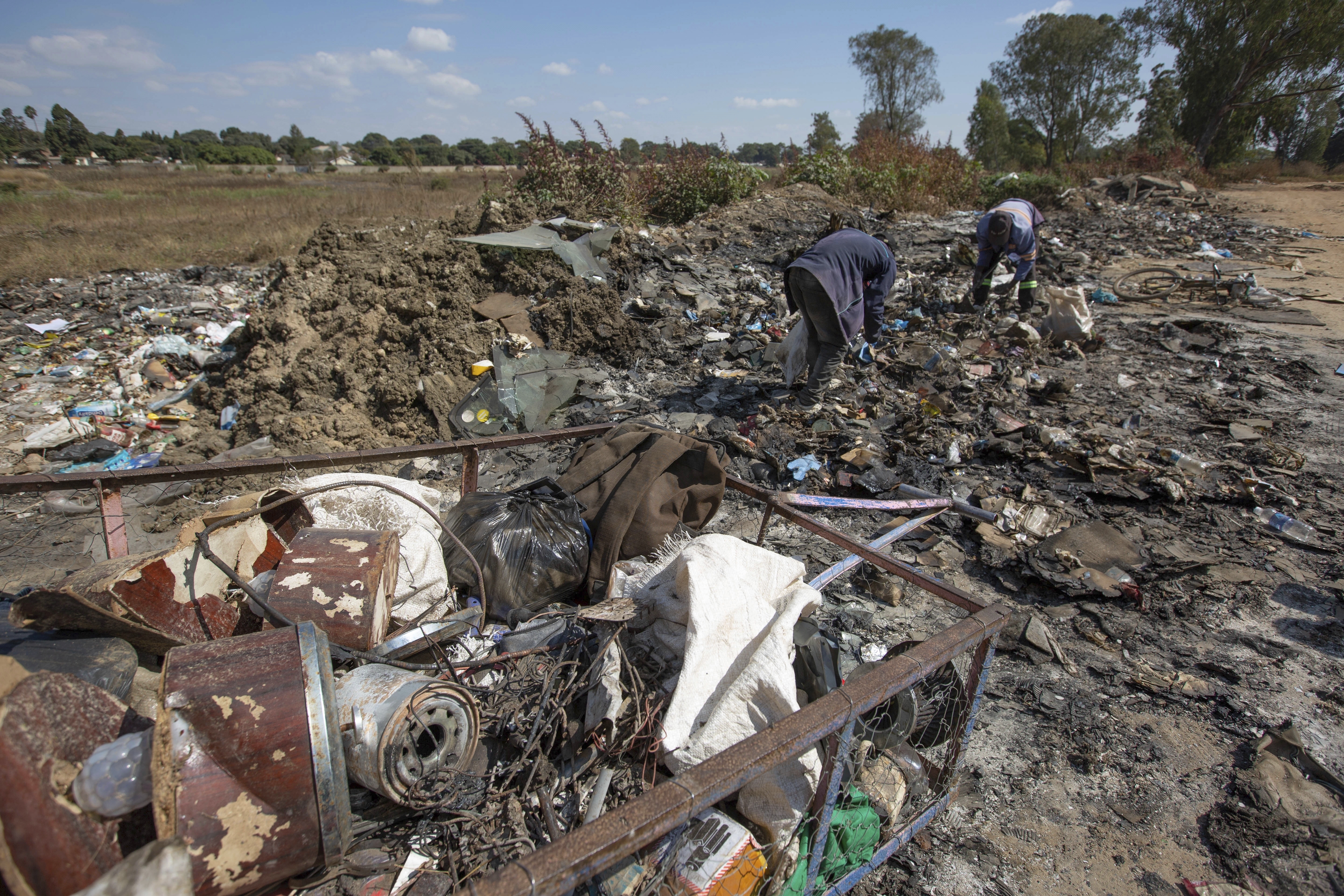 |
People scavenge for scrap metal in Harare, Zimbabwe.
According to the Organisation for Economic Co-operation and Development (OECD), ore-based steel production relies heavily on coal, a significant pollutant. This industry emits nearly 8% of global CO2 emissions, contributing to global warming. The US Environmental Protection Agency estimates that recycling steel and tin cans saves 60-74% of the energy required for raw material production.
Zimbabwe, a southern African nation of 16 million people, consumes around 600,000 tons of scrap metal annually. Dosman Mangisi, operations director of the Institute of Mining Research, said all of this scrap is collected locally.
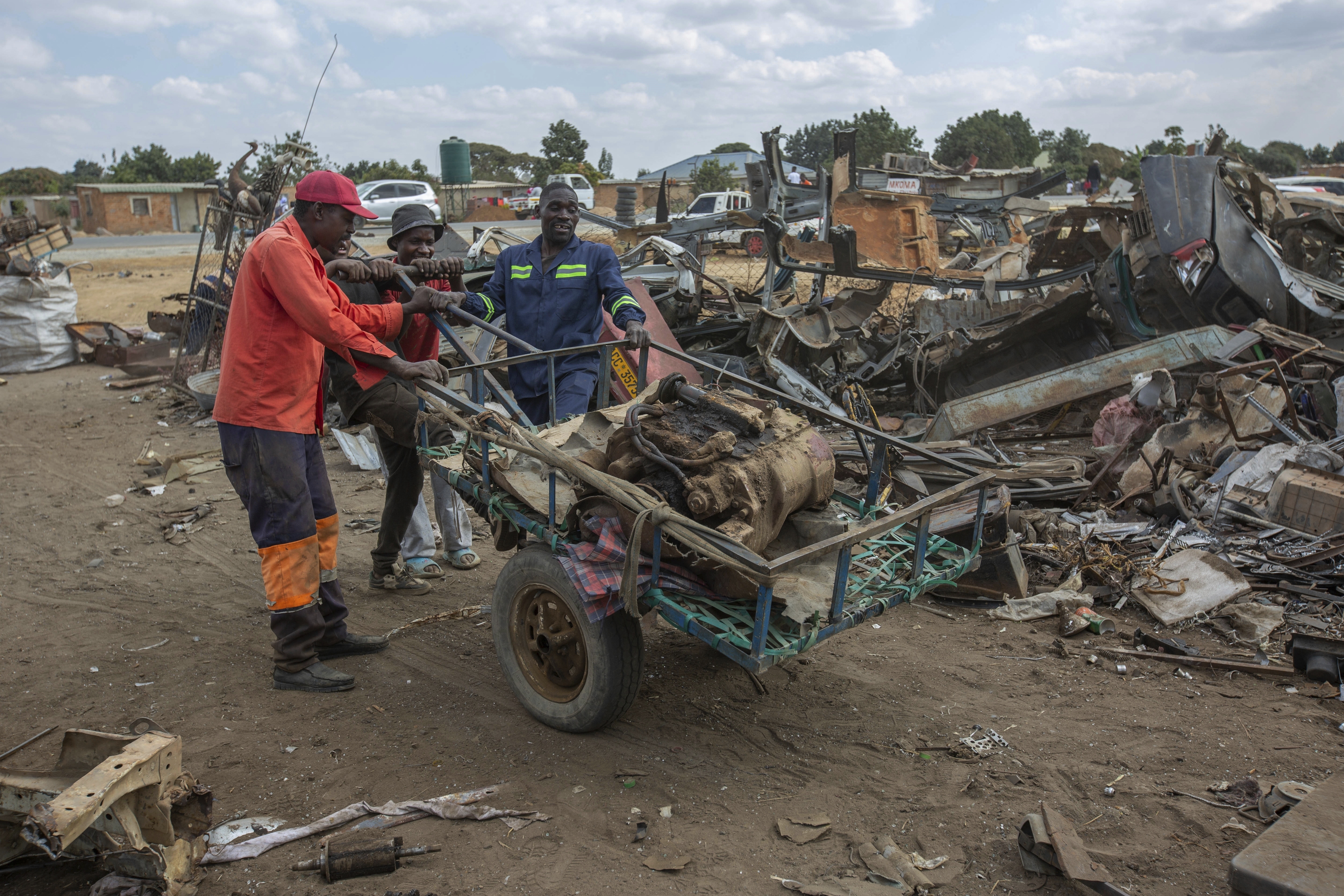 |
A group of collectors push a cart of scrap metal in Harare, Zimbabwe. Harare generates about 1,000 tons of waste daily, most of which goes uncollected. Residents and businesses often dump rubbish on roadsides and in open spaces, sometimes burning it. The city council recently partnered with a waste management company to improve collection.
But for now, informal scrap collectors like Mabhiza remain essential.
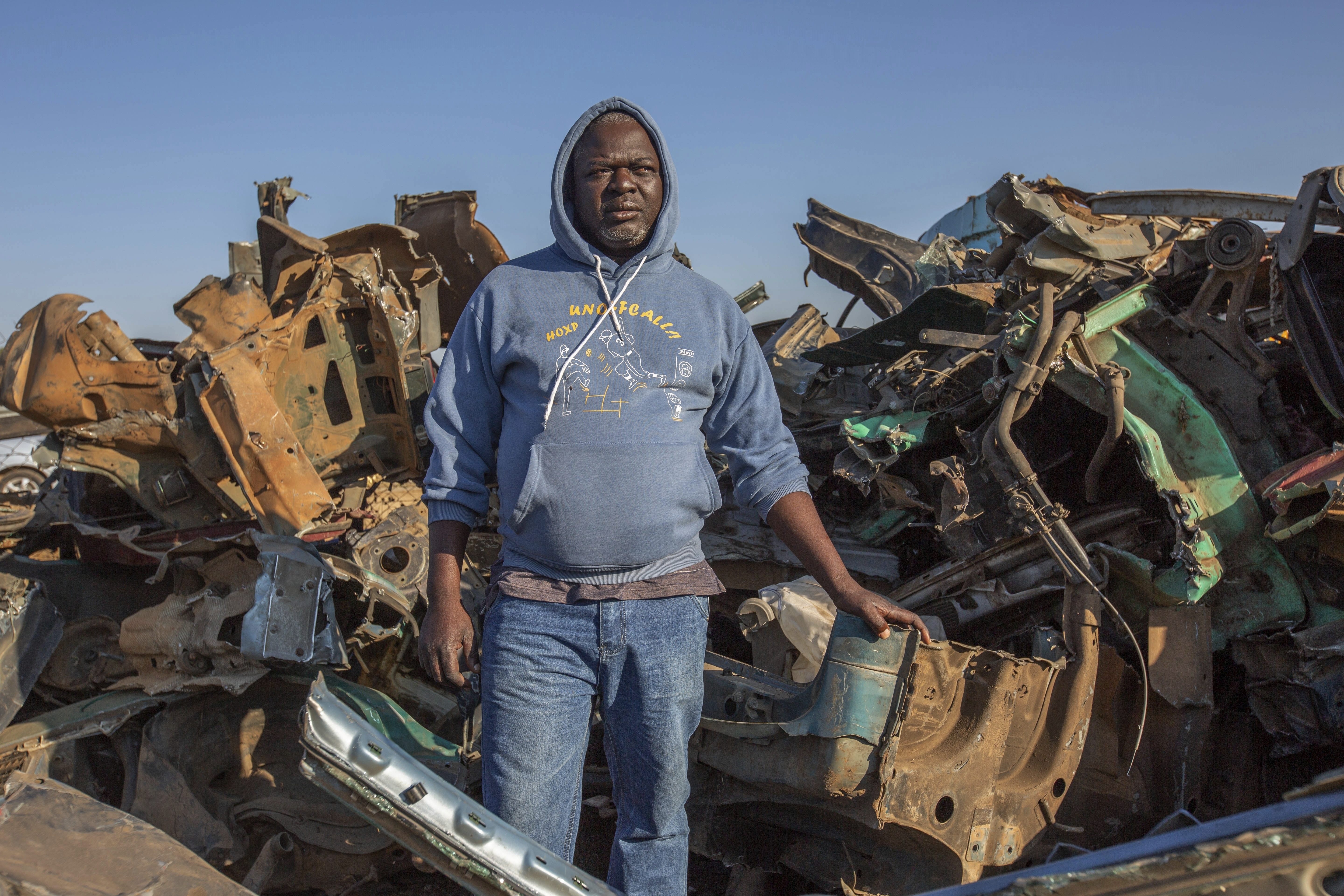 |
Fungai Mataga, who runs a scrap collection center, admits it's dirty work, but people rarely grasp its importance.
He sees scrap collectors as society's "clean-up crew." Every piece of metal they bring in reduces pollution.
Pictured: Fungai Mataga at the scrap metal collection center he runs in Harare, Zimbabwe.
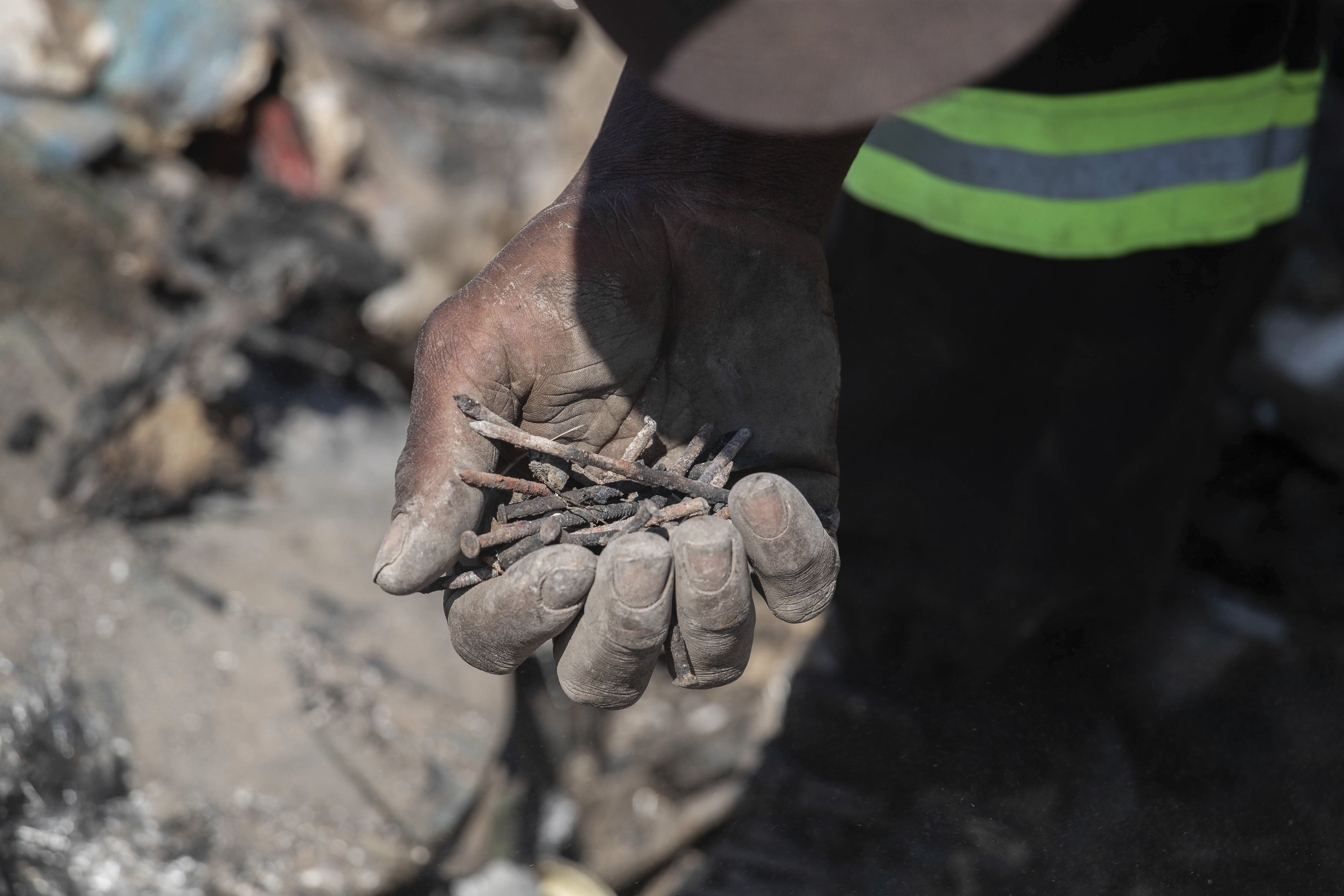 |
A scrap collector gathers nails in Harare, Zimbabwe.
Joyce Machiri, who heads the mining and extraction program at the Zimbabwe Environmental Law Association, calls scrap collecting a "green job," and people like Mabhiza "unsung heroes."
Mabhiza believes his current work is better than before, as he can pay rent and support his children's education. "With a formal job, you go into the industrial areas all day and come back empty-handed," he said.
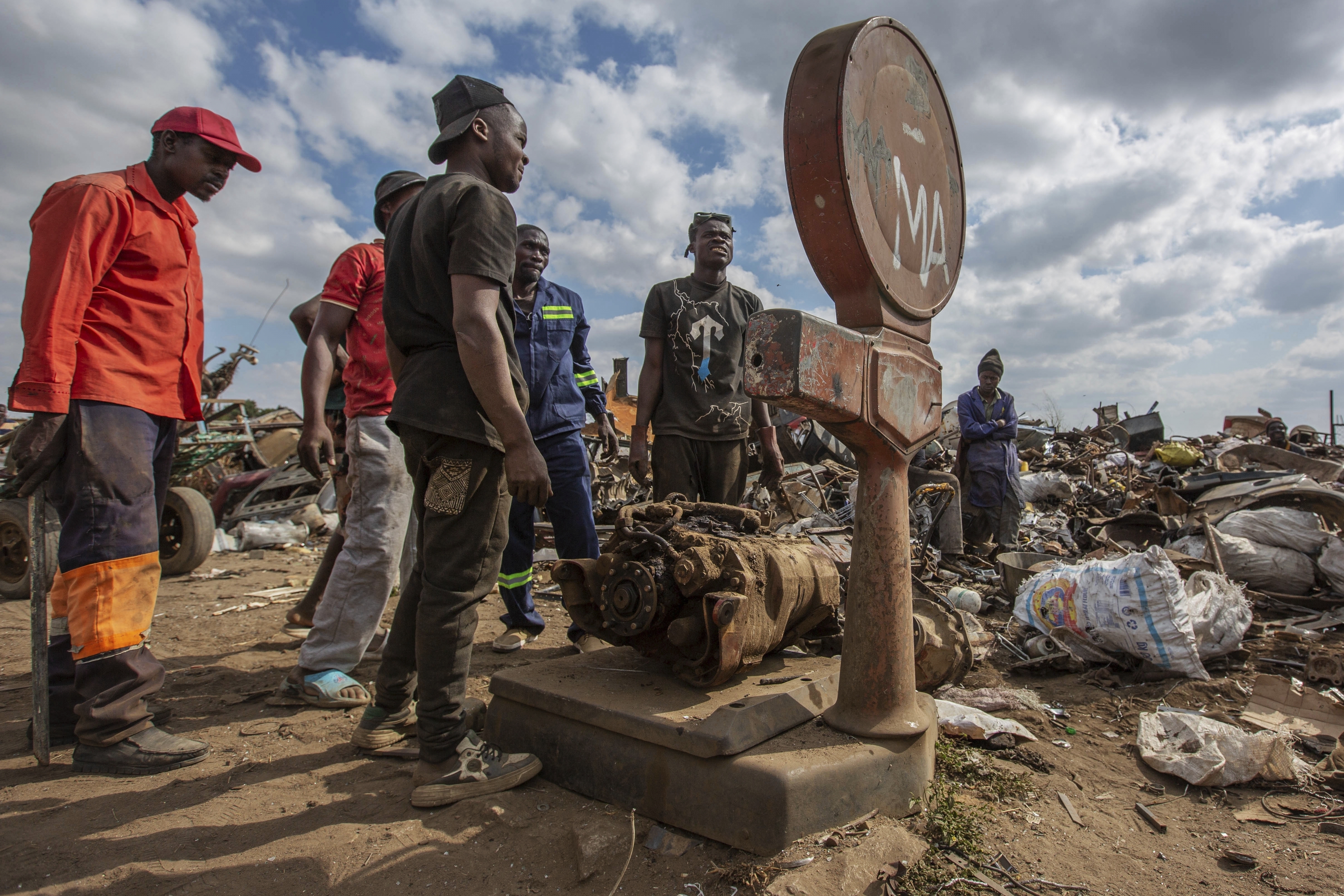 |
The work is arduous and dangerous. Collectors wake before dawn, walking kilometers to illegal dumps, industrial areas, homes, and roadside trash piles. To find more valuable scrap, some sleep near dumpsites, waiting for trucks to illegally dump waste at night, so they can be the first to scavenge for "gold."
Lovemore Sibanda, a security guard who collects scrap on his days off, wishes for protective gloves. In his early days, he was so repulsed by medical waste and decaying animal carcasses that he couldn't eat for days. "Now I’m used to it," Sibanda said. "This dumpsite is my office, where the money is."
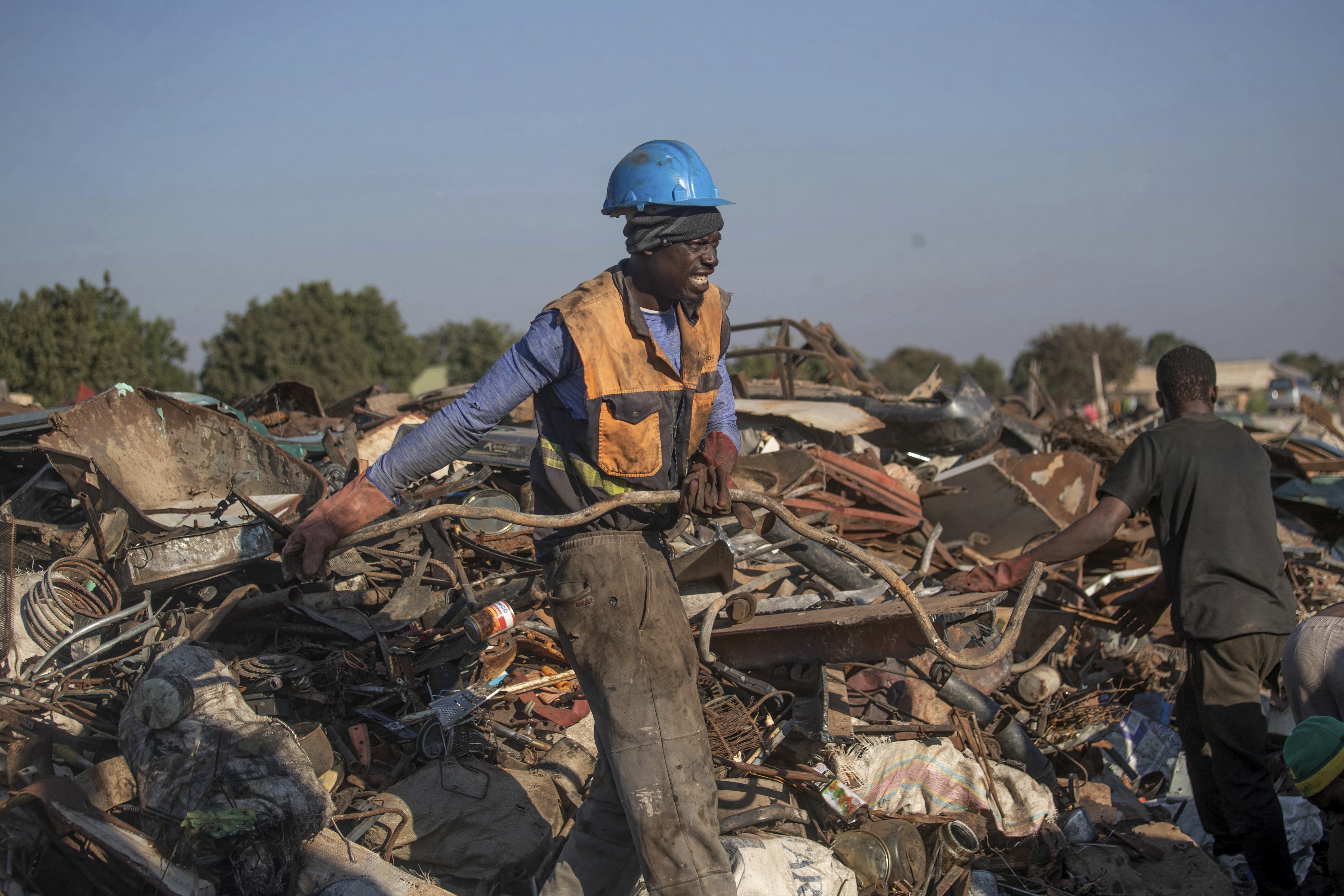 |
Workers sort scrap metal at a collection center in Harare, Zimbabwe, 8/6. (AP)
Bao Bao (via AP)






